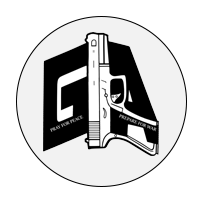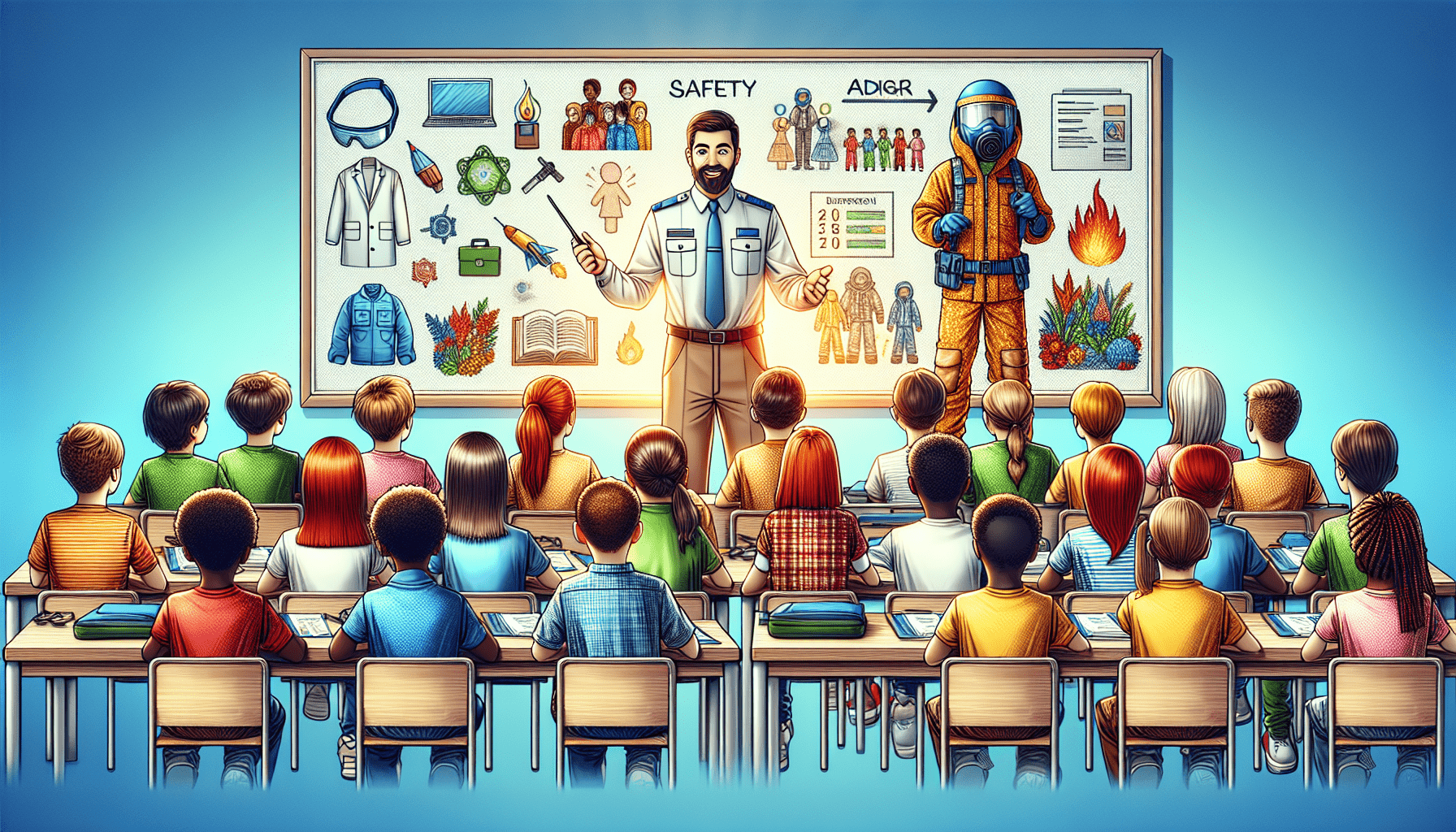Have you ever wondered what it takes to become a responsible gun owner? It’s not just about buying a gun and heading to the range. There’s a whole process involving training and certification to ensure you’re prepared for the responsibility. You might be surprised at how detailed and rigorous it can be, but all these steps are crucial to promoting safety and responsibility among gun owners.
Understanding the Basics of Gun Ownership
First things first, let’s talk about the basics. Gun ownership isn’t just about having a cool gadget at your disposal. It comes with a set of responsibilities that are crucial for your safety and that of those around you.
Gun ownership requires more than just a casual approach. It demands respect for the weapon, understanding its mechanics, knowing the laws, and, most importantly, being prepared to use it responsibly.
Why Training And Certification Matter
You wouldn’t drive a car without learning how to operate it safely, right? The same logic applies to firearms. Proper training and certification are vital for several reasons.
- Safety: Knowing how to handle a firearm reduces the risk of accidental discharge and injuries.
- Legal Compliance: Certification ensures that you are up-to-date with the laws and regulations governing firearm use in your area.
- Proficiency: Training helps you become proficient in using your firearm, making you more effective in defensive situations.
- Ethics: Understanding the ethical implications of gun ownership is a crucial part of being a responsible owner.
Legal Requirements and Regulations
Before you even think about purchasing a firearm, it’s essential to understand the legal landscape. Gun laws can be incredibly complex, with variations from state to state and even between municipalities.
In Florida, for example, there are specific requirements for purchasing and owning a firearm. You must be at least 21 years old and pass a background check. Additionally, there are waiting periods for certain types of firearm purchases.
It’s essential to stay informed about these requirements to avoid legal complications. Ignorance of the law, as they say, is no excuse.
The Importance of Education in Gun Ownership
Education is a cornerstone of responsible gun ownership. Knowing how to safely operate and maintain your firearm can prevent accidents and save lives.
Basic Firearm Safety Rules
Here are the golden rules of firearm safety that you should always keep in mind:
- Treat All Guns as Loaded: Never assume a firearm is unloaded.
- Never Point the Muzzle at Anything You Do Not Intend to Destroy: This simple rule can prevent most accidents.
- Keep Your Finger Off the Trigger Until You Are Ready to Shoot: This helps avoid accidental discharge.
- Be Sure of Your Target and What Is Beyond It: Understanding this can prevent collateral damage.
Advanced Training Programs
While basic training is essential, advanced programs can take your skills to the next level. These courses often cover situations you might not think about, such as home defense scenarios or active shooter situations.
Here’s a look at different levels of training:
| Training Level | Key Areas Covered | Ideal For |
|---|---|---|
| Basic | Safety, basic operation, shooting fundamentals | Beginners |
| Intermediate | Defensive shooting, situational awareness, strategies | Regular users seeking more skills |
| Advanced | Tactical training, emergency response, high-stress scenarios | Law enforcement, enthusiasts seeking expert-level skills |
At Green Line Arms, we offer a range of training programs designed to meet the needs of both beginners and advanced users. Our goal is to ensure you are well-prepared, regardless of the situation you might face.
Choosing The Right Firearm For You
Selecting the right firearm is a personal decision that depends on various factors. It’s not simply about picking the biggest or the most powerful gun; it’s about finding one that fits your needs and feels comfortable to use.
Types of Firearms
Firearms generally fall into three categories: handguns, rifles, and shotguns. Each type has its advantages and ideal use cases.
- Handguns: These are versatile and easy to carry. Handguns are often the first choice for self-defense and concealed carry.
- Rifles: Known for their accuracy and range, rifles are ideal for hunting and long-range shooting.
- Shotguns: These are highly effective for home defense due to their wide shot spread.
Factors to Consider
When choosing a firearm, consider the following:
- Purpose: Are you buying for self-defense, hunting, or sport shooting?
- Comfort: The firearm should feel balanced and manageable in your hands.
- Recoil: Different firearms have varying recoil levels. Make sure you can handle the one you choose.
- Ammunition Availability: Ensure that ammunition for your firearm is readily available.
The Buying Process
The process of buying a firearm involves several steps. It’s not as straightforward as you might think, but each step is in place to ensure safety and legality.
Where to Buy
Reputable gun shops, such as Green Line Arms in Pensacola, Florida, are the best places to start your firearm journey. These shops offer professional advice, a wide range of options, and often have on-site training facilities.
Necessary Paperwork
You’ll need to complete several forms and provide identification. In most cases, a background check is also required. Keep in mind that there might be a waiting period, especially for handguns.
Testing and Familiarization
Once you’ve purchased your firearm, it’s crucial to familiarize yourself with it. This is where a shooting range comes in handy. Green Line Arms not only offers a physical range but also a virtual shooting experience for honing your skills in various scenarios.
The Role of Accessories
having the right accessories can significantly impact your shooting experience. Whether it’s for comfort, safety, or improving your skills, here are some accessories worth considering:
Essential Accessories
- Holsters: A good holster not only allows for easy access but also provides safety by keeping the trigger guard covered.
- Safety Gear: Always wear eye and ear protection when shooting.
- Cleaning Kits: Regular maintenance is crucial for the longevity and reliable performance of your firearm.
Enhancing Your Range Experience
- Targets: Different types of targets can help improve your accuracy and skills.
- Ammunition: Quality ammunition can make a big difference in your shooting experience.
- Range Bags: These are convenient for carrying all your gear to and from the range.
Green Line Arms offers a wide variety of accessories tailored to meet your needs, ensuring a safe and enjoyable shooting experience.
First Responder Medical Training
An often-overlooked aspect of responsible gun ownership is first responder medical training. In the unfortunate event that someone is injured, knowing how to provide immediate medical assistance can be invaluable.
Why It’s Important
- Immediate Response: The first few minutes after an injury are critical. Being able to provide immediate aid can save lives.
- Comprehensive Safety: Responsible gun ownership isn’t just about preventing accidents but also being prepared for them.
What to Learn
- Basic First Aid: Knowing how to treat cuts, bruises, and minor injuries.
- CPR: Cardiopulmonary resuscitation can be a lifesaver in critical situations.
- Trauma Care: Specialized training for handling serious injuries, such as gunshot wounds.
Green Line Arms also offers first responder medical tips to enhance your overall preparedness.
Understanding the Ethics of Gun Ownership
Owning a firearm is a significant responsibility that goes beyond mere possession. Understanding the ethical implications is crucial.
Respect for Life
Gun ownership isn’t about looking for trouble; it’s about being prepared to defend yourself and those you care about. Always remember that taking a life, even in self-defense, is a serious matter with profound ethical implications.
Legal and Moral Boundaries
Knowing the law is one thing, but understanding the moral boundaries of when and how to use a firearm is another. Engaging in scenarios where you might use your firearm requires a clear head and an ethical mindset.
Community Involvement and Advocacy
Being a responsible gun owner also means being an active member of the community. Advocacy for responsible gun ownership and involvement in community safety programs can have a far-reaching impact.
Joining a Community
Engaging with other responsible gun owners through clubs, forums, or events can provide ongoing education and support.
Advocacy Programs
Participating in advocacy programs promotes a safer environment and raises awareness about responsible gun ownership.
Continual Learning and Improvement
The journey to becoming a responsible gun owner doesn’t end once you’ve purchased a firearm and completed basic training. Ongoing education and practice are vital.
Regular Practice
Consistent practice helps maintain your shooting skills and keeps you familiar with your firearm. Make it a point to visit the range regularly.
Advanced Courses
Take advantage of advanced training courses to sharpen your skills and stay updated on the latest techniques and laws.
Conclusion
Becoming a responsible gun owner is a multifaceted journey that involves much more than simply purchasing a firearm. From understanding the legal requirements to undergoing extensive training and certification, each step is designed to prepare you for the significant responsibility that comes with owning a gun.
At Green Line Arms, we are dedicated to promoting responsible gun ownership. Whether you’re a beginner looking to start your training or an experienced shooter aiming to refine your skills, we offer a range of programs tailored to your needs.
Remember, responsible gun ownership is not just about you; it’s about the safety and well-being of the entire community. So take the time to educate yourself, practice regularly, and stay informed. By doing so, you’re not just becoming a good gun owner; you’re becoming a responsible member of society.
For all your firearm needs, training programs, and first responder medical tips, visit Green Line Arms. Let’s work together to create a safer, more responsible environment for all.




